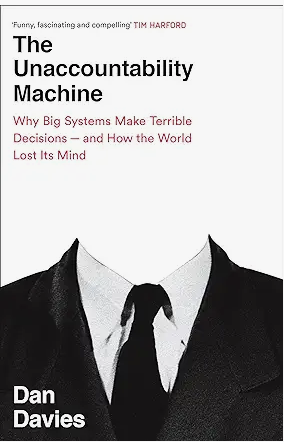Custodian of the Square

Every morning, when we come down to the village, we find this black cat in his observation post, keeping an eye on things.
Quote of the Day
“An elderly friend once told me there were four ages to life: youth, middle age, old age, and ‘You look great’.”
- Robert Reich, who turned 78 the other day (and seems in good shape!)
Musical alternative to the morning’s radio news
D:Ream | Things Can Only Get Better
Here’s hoping!
Long Read of the Day
Israel’s Two Front War
If the British Academy had a category for academia’s national treasures then Lawrence Freedman would be my nominee. He’s the most knowledgeable and astute commentator on contemporary warfare. In his Substack blog (cheekily entitled Comment is Freed, a poke at the Guardian, I guess), he now turns his attention to what’s happening in the Middle East.
What makes the situation now even more dangerous is the role of the Iranian regime with its slogan of ‘Death to Israel.’ It is the Iran factor which turns a conflict which was already difficult enough, but might have been contained, into something that has already gone much wider. It has done its utmost to ensure that Hamas can sustain and develop its military capabilities, works with the Houthis in Yemen and Hezbollah in Lebanon, and promotes radical Shia groups throughout the region. The Arab monarchies have always been fearful of Iranian-inspired radicalism. This is one reason why they have got closer to Israel. But prior to the Gaza War they had also been trying to find some modus vivendi with Iran. The same was true with the Biden Administration, as it tried to rescue the nuclear deal with Iran which had been agreed under Obama but then abandoned by Trump. But the clerical Iranian regime has become more and not less hard-line, including supporting Russia in its aggression in Ukraine. It is pressing on with its nuclear programme. It presents itself as a key player in an anti-Western coalition. Its other slogan is ‘Death to America.’
The Gaza war began with a breakdown of deterrence. Israel had believed that Hamas to its south and Hizballah to its north understood that however much they hated Israel they could not do much about its continuing existence. But Hamas was not deterred and found a way through Israeli defences. Having concluded that Hamas cannot be either appeased or deterred, from the Israeli perspective the only option left was its elimination. But it also can’t be eliminated…
Israel is now gearing up for an incursion into Lebanon to push Hizballah back from its current positions, and to this end is redeploying forces from the south to the north. Netanyahu has dismissed the idea that an unfinished war in the south makes it unwise to take on a new one in the north: ‘We can fight on several fronts. We are prepared for this.’
There’s no good news here, which is why Freedman’s analysis is sobering.
Books, etc.

I’ve read Dan Davies’s book and have been deeply impressed by it, not just because it’s the first time I’ve seen an economist write insightfully about cybernetics and the work of Stafford Beer, but also because it suggests a way of looking at corporations (and other large organisations) as artificial superintelligences (what Charlie Stross called “Slow AIs”).
I was incubating a review of the book when what should pop up but a terrific long essay by Brad DeLong, who is a great economist and a lot smarter than me. Funnily enough, he also set out to write a brief review of Dan’s book and wound up writing 5,000 words. So, rather than try inventing that wheel, I’m happy to hand over to him!
Here’s how he sets the scene:
By reviving the ideas of cybernetics pioneer Stafford Beer, Davies suggests we can build organizations that are not just efficient, but truly accountable. In an age of AI anxiety and institutional mistrust, The Unaccountability Machine offers a timely reminder: the machines we fear most are the ones we’ve already built.
We have built a world of vast, interlocking systems that no one can fully understand. From corporate behemoths to government bureaucracies, these leviathan-like societal machines with human beings as their parts make decisions that shape our lives—often with disastrous consequences. Can there be a way to tame these monsters of our own creation, to give them human faces? Dan Davies thinks the forgotten discipline of “management cybernetics” might provide a way. That is the crux of his brand-new The Unaccountability Machine. Our societal woes stem not from individual failings, but from the opaque workings of large-scale decision-making structures—hence the need for better system design, better feedback loops, and more and better chosen variety of information, state, and action in these machines’ control mechanisms. Cybernetics was the discipline to help us understand communication and control in complex systems. The steersmen all ran aground, But we can try again…
It’s worth your time because, as Brad puts it, “it sheds light on one of the most pressing issues of our time: why big systems make terrible decisions”.
My commonplace booklet
OpenAI Co-founder Andrej Karpathy explains the new computing paradigm: LMOS
“We’re entering a new computing paradigm with large language models acting like CPUs, using tokens instead of bytes, and having a context window instead of RAM.
This is the Large Language Model OS (LMOS)”
Linkblog
Something I noticed, while drinking from the Internet firehose.

The ‘poetic AI camera. Intriguing idea (and story) from Om Malik’s blog.
It is essentially a 3D-printed camera body that houses a Raspberry Pi and a small printer typically used for printing receipts. It uses a Raspberry Pi’s visual module to capture a “photo,” then sends it to the internet, uses “AI” to analyze the image, and returns with a poem based on what it sees.
In other words, it’s an AI camera. It consistently generates short, cute poems that you can print out to share with others or paste into your journal. It is quite fun. This device perfectly encapsulates what I believe is inspired tinkering that will lead to new products and breakthroughs.
The Raspberry Pi is one of the wonders of the digital world.
This Blog is also available as an email three days a week. If you think that might suit you better, why not subscribe? One email on Mondays, Wednesdays and Fridays delivered to your inbox at 6am UK time. It’s free, and you can always unsubscribe if you conclude your inbox is full enough already!
